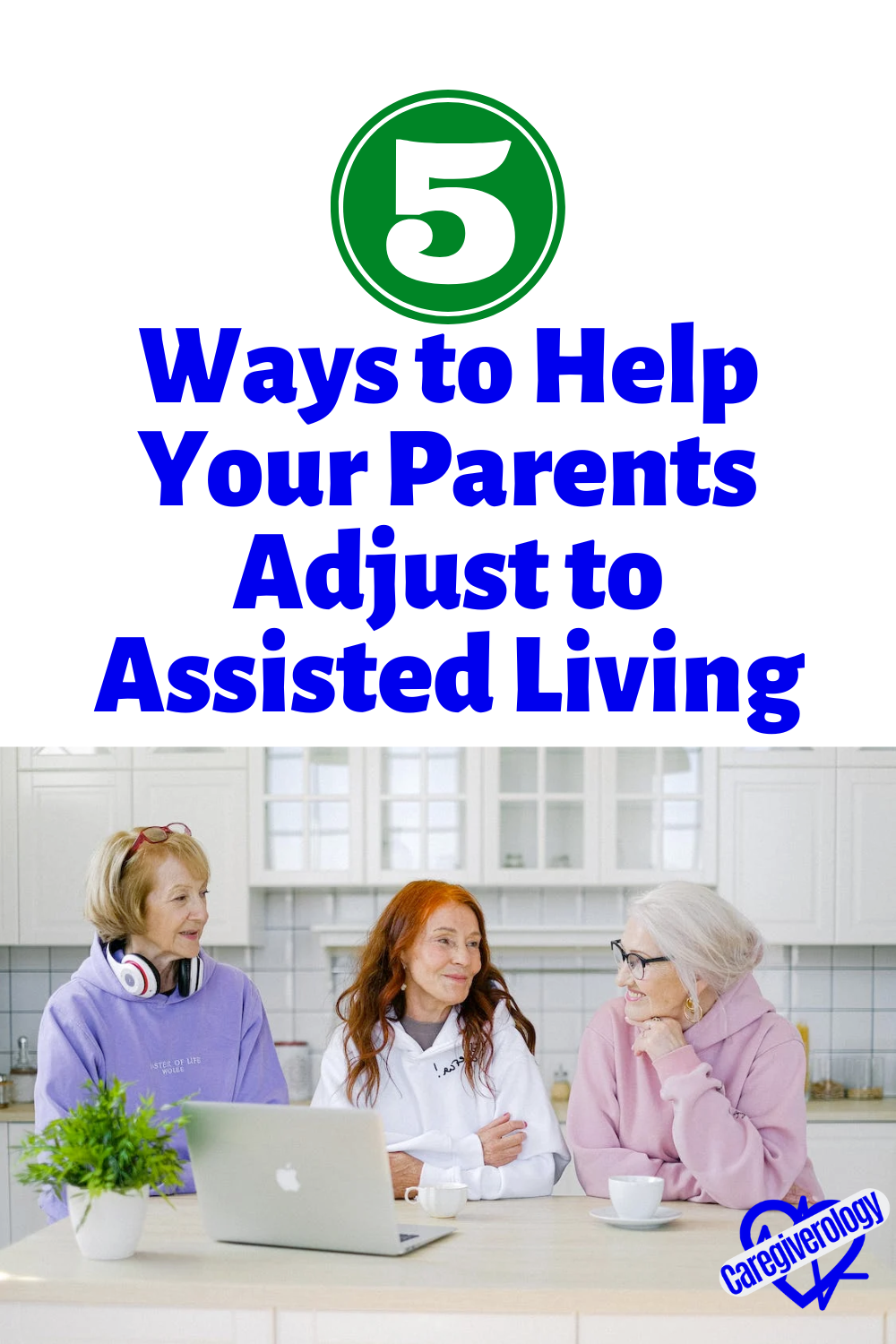5 Ways to Help Your Parents Adjust to Assisted Living

You tried your very best, you tried to delay it for as long as you could, and it breaks your heart to take this life-changing decision. But now that the inevitable is upon you, you must face it. The time has come to move your parents to an Assisted Living facility in the best of their interests and even yours.
But take heart! There are several ways that can make this transition much easier for you both of which these five are most important at every stage of the move.
Before During After Adjustment Staff
Before the Move
It may be one of the most difficult conversations to have in your lifetime, but you must broach the subject tactfully and the timing has to be right. It is better to have the conversation when the actual need arises. They would be much more receptive to considering the possibilities then.
You could begin with a general observation about how moving to an Assisted Living facility may actually improve the quality of life at a certain stage of age. To defuse defensive reactions, you could express your concern about their recent falls, and the strain the upkeep of the house is having on their health.
You must show empathy but your empathy skills need to be fine-tuned to understand this life-changing move is having on the psyche of your parents. So far they have been living independently, raising a family, and taking care of others, and their own home throughout their entire lives.
Moreover, the idea of moving into an Assisted Living facility often creates a feeling of loss of independence and being reliant on strangers. Many seniors are distraught at the thought of becoming a burden on others, others may feel a sense of shame and loss of dignity. It is necessary to reassure them that they are as valuable to the family and are needed as they were before. They may be challenged physically but their experience and wisdom is invaluable.
And there will be many things that will not change such as their outings to book clubs, and restaurants, the celebration of festivals, and the pursuit of hobbies. In fact, there will be better opportunities for recreational activities and socializing which would improve their quality of life.
They must be involved in the research and tours of Assisted Living facilities, as far as possible. If they feel discouraged, disinterested, or disengage themselves from the process try to engage them in discussions about the amenities, apartment size, location, and costs. The costs may work out to be less than that of Home Care which is way more expensive.
During the Move
Moving by itself is a stressful event, more so with downsizing when you are forced to sort through, store or discard a lifetime of cherished memories and mementos. It is an emotional event, but necessary, so you must plan the downsizing process long before your parents’ move is planned. This will allow them plenty of time to decide on the items to be stored, discarded, or moved with them into the Assisted Living facility.
To make it emotionally easier on them you may make it a fun exercise sorting it out together, reminiscing the good times, and encouraging them to look forward to the new innings of their life and the newfound freedom it has to offer. Do not hesitate to take the help of friends or movers on a moving day.
Though your parents may not be involved in the physical side of moving, they must be involved in getting settled in their new home. They may be a little sad or disoriented initially but you must help them move, set up their new apartment or room, review all of the assisted living facility’s activities with them, and assure them that you are just a phone call away. This will help ameliorate the disorientation caused by new people and new surroundings.
After the Move
To soothe their transition into assisted living, you can help them set up and decorate their new home. It can be a lot of fun if you involve them in making decisions about where the things are to be placed and hung. Help your mom as you once did as a child, decorate the front door, balcony, or patio area to make the new place feel like home.
Listen attentively and follow her instructions as you make furniture arrangements, place things, and hang pictures on the wall without imposing your choice upon her. Ensure that your parents are aware of all the services, activities, and amenities they are entitled to.
During the Adjustment Period
Adjusting to assisted living can be both exciting and terrifying for your parents. Talk to the resident activities staff and let them know what kind of activities your parents are interested in and enjoy doing. Your parents may feel isolated and lonely in the first few weeks if they are introverted by nature, hesitate to mix with new people, and do not actively seek socializing.
You can find out if the facility has a mentor resident who can show them around, join them at meals or accompany them to a hobby class or activity. Chances are, most residents will be willing to help as they have gone through the same situation before. All it takes is one friendship to break the ice and make them start feeling more at home.
It may take some time for your parents to come out of their shells, but you must give them time and let them know it’s okay and how relieved you are that they are safe. Also, it’s only a matter of time before they will adapt to this new life and will be mentors to other residents. Your reassurance will help them a great deal.
Visit them frequently and regularly to let them know that you love and miss them as much as they miss you and that you haven’t abandoned them. Even if you find them being negative or over-sensitive, it is necessary to validate their feelings by listening patiently, lest it increases their feelings of inadequacy and loneliness.
Without being too insistent, encourage them to get involved in the activities the assisted living facility offers. It may take some time but as they make new friends, they will come to realize the benefits of this new life and how their quality of life has improved without the hassles of housekeeping, lack of caregiver assistance, lack of socializing, or outings due to physical challenges earlier, before they moved into assisted living.
Include the Staff in Your Team
Make the staff members a part of your team and keep them in the loop along with your parents regarding their healthcare, medications, changed prescriptions, diet, etc. Do not hesitate to voice the concerns of your parents and of your own and ask questions.
Inform them of the little things that make your parents’ life comfortable and routine and should be integrated into their new life. Do not presume that they will know everything automatically. You know your parents better than them and must inform them of their inhibitions, habits, etc. and they will be willing to help should the need arise.
If your parents cannot communicate effectively due to Alzheimer’s disease or dementia, it may take longer to acclimatize to the new environment and lifestyle. Allow them time to adjust by listening, being present for them, allowing them to experience both positive and negative emotions, and conveying how important they are for you and that you are always there for them will help your parents transition successfully and smoothly ensuring greater happiness for them.
Remember this is a lifelong commitment, similar to the one they made when they brought you into this world. Check regularly for any lapses in care, or abuse as no place is perfect. Include them in the family celebrations and festivals as before by visiting or inviting them or taking them out. The more quality years you can add to their life will be the true indicators of your success.
Thank you John Francis for contributing this article.
Guest Articles Written for Caregiverology
From 5 Ways to Help Your Parents Adjust to Assisted Living to Home
Recent Articles
-
Common Truck Crash Injuries and Legal Remedies - Caregiverology
Jul 19, 25 10:49 AM
Known for its sun-drenched beaches, vibrant arts scene, and bustling maritime industry, Fort Lauderdale is a city that sees heavy traffic both on its roads and at its busy port. Unfortunately, with th… -
Why Expert Legal Help Matters After Serious Injury - Caregiverology
Jul 19, 25 10:35 AM
In Houston, over 67,600 car crashes occurred in 2023, resulting in 290 fatalities and 1,612 serious injuries. That’s roughly 185 accidents every day. -
How Life Care Planners Support Injury Recovery - Caregiverology
Jul 19, 25 10:18 AM
In Los Angeles, life care planners play a vital role in supporting injury recovery, especially for individuals facing catastrophic injuries such as traumatic brain injuries or spinal cord damage.





New! Comments
Have something to say about what you just read? Leave a comment in the box below.